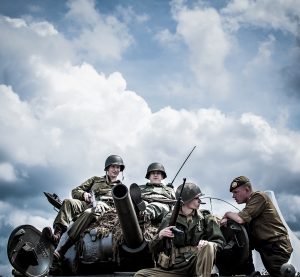Pacifism and the Soldier – Part 1

This post is greatly enhanced by the poetry of Ruth Naylor.

Photo by Anna Ogiienko on Unsplash
We all know that bravery is part of soldiering. The new documentary “Going to War” by Sebastian Junger and Karl Marlantes outlines veterans’ experiences and makes some interesting conclusions. There is more to soldiering than meets the eye; there are deep friendships, but also red hot, angry feelings that are difficult to live with. And there is bravery. http://www.pbs.org/tpt/going-to-war/home/
Fewer of us know that bravery is part of pacifism, and that pacifism is not passive-ism. In fact, it is a tough, principled decision to go against everything natural to animals and humans: the protection of family and territory. War is not only accepted but lauded in many societies. Men who become COs or refuse to register when the draft is in effect are reviled. They have suffered at the hands of townspeople, governments, and the military. Some have been tortured, their lands and belongings taken, their families broken up. This is true.
I’m not able to write about pacifism without acknowledging my own desire not to mention it. Pacifism is like putting your hand on hot coals and leaving it there because your conscience tells you it’s the right thing to do. But I’m curious, so I’ll spend some posts this month trying to come to grips with it.

Photo by raquel raclette on Unsplash
Together, we’ll examine quotes from “Going to War,” which was aired by PBS on Memorial Day. We’ll look at history and definitions of pacifism and its related concepts. We’ll be exposed to the worst the military had to offer pacifists, and we’ll feel what we feel. The Center on Conscience and War (CCW, formerly the National Interreligious Service Board for Conscientious Objectors) will receive attention. We’ll try to honor everyone’s service to society, with a sense of feet-on-the-ground reality.
I married a non-Mennonite who had a low lottery number in the Vietnam draft. He signed up for a four-year stint in the Navy, attended thirteen weeks of boot camp at Great Lakes, Wisconsin, where the welcome greeting of those in charge was: “You are entering a world of sh*t,” but he ended up in Washington, D.C., in the U. S. Navy band, playing for government functions. Those not in D.C. bands were subject to being shipped to Vietnam to provide music for the war. Now, my husband attends a Mennonite church with me. I’m surprised. After starting out in a little, urban Mennonite church in the mid-1970s, we attended Methodist and Presbyterian churches, but my husband wanted to come back into the Mennonite fold, where he liked the depth. He says, though, that being in Mennonite company and trying to completely understand the church’s emphasis of pacifism is like attempting to eat soup with a fork. Pacifism is not easy.
I’ve been going through letters lately, and I found some statements by my mom and dad about WW II, in which to my amazement each said that at first, they considered WW II a ‘just war,’ as many did. Dad, another non-Mennonite by birth, entered the Coast Guard, which in that war was often attached to the regular Navy. A musician at the time, like my husband, he played in a band on a ship that traveled the seas as far as India. But when the war was over, he attended a discussion group with men who wanted to think through their wartime participation, be it as medics, COs, or those in action. Mom told me that, when she was living in New York City waiting for Dad to come home, she didn’t think she would be a Mennonite again. But Dad himself made the decision, not only to be a Mennonite but to go into Mennonite service.
Anabaptism bases much of its belief on the teachings of Jesus–Love your enemies, and the letters of Paul to the struggling, early churches–1 Thessalonians 5:15 (NRSV) 15 See that none of you repays evil for evil, but always seek to do good to one another and to all.
It’s hard to write about pacifism because I find myself wanting to grab society by the collar and convince it that our guys aren’t cowards. Gracious God, what man would do that to himself if he hadn’t been visited in fire by the example of Jesus’ life itself?
One of the toughest forms of pacifism to defend is that of the young man who signs up to serve and then is hit by his own conscience. These guys!? Did they suddenly chicken out; are they mad? No, they are wrestling with the muscled angels of Christian ethics. They no longer believe that fighting wars is what they as men should do. They want to serve the world in other ways. It’s that simple, but the consequences are not.
__________

Photo by Kyle Johnson on Unsplash
__________
A poem by Ruth Naylor:
This poem was written after seeing an NBC report about a young man who had enlisted in the army but then found that his conscience would not permit him to stay.
A Soldier Reneges
He sat alone
in a room full of TV reporters,
blond hair brushing his shoulders
–a silent plea for understanding
in his honest eyes. The pool
of his spirit was reflecting
on wriggling questions–bait
cast to catch him.
This quiet rebel looked bewildered;
people did not want to understand
why he could not support
his beloved country’s way to peace.
At times he seemed more distant
than the battlefield and violence
he abhorred. Then he’d remember
and carry on . . .alone . . .
But not alone.
The above poem was framed and displayed in the “From Swords to Plowshares: Our Process of Transformation” Art Show—a cooperative venture between Central District Conference and Bluffton University in 2017. The poem was displayed in the Albrecht Gallery of the Sauder Arts Center and later at the Bluffton Public Library.
__________
Ruth Naylor’s poetry and articles have appeared in over 35 different periodicals and more than 10 anthologies. Her first collection of poems is titled A Family Affair (Finishing Line Press, 2013.) Her newest collection is Straw and All: A Christmas Poetry Collection (Workplay Publishing, 2014.) Both books are available from the two Hallmark stores in Lima, Ohio, and at Book Reviews and Black Lab in Bluffton, Ohio. A retired English teacher and pastor, Ruth continues her interest in writing and still serves as a spiritual director in Bluffton, OH.
Thank you, Ruth!
__________
I welcome your comments: gretaholtwriter.com/blog. Please enjoy a few short stories on the Home page, as well.
{Thank you to my niece, Addie Liechty, for taking the picture above that is this blog’s featured image. Her blog is: https://addieswriting.wordpress.com.}
Best wishes and have a good week.
Greta
Greta – thank you for sharing your struggle about this very difficult issue.
I look forward to reading more.
Nicky, it’s such a personal decision but also a concept that large groups accept or reject and argue about.
Greta–Thank you for this thought-provoking post. I enjoyed your weaving in your own family history–it provided an interesting backdrop for the discussion. One sentence of the post struck me in particular. You described the young soldier suddenly hit by his conscience as “wrestling with the muscled angels of Christian ethics.” This led me to do some research into my own faith (Judaism) and its teachings on war and violence and pacifism.
Thanks also for the link to the documentary.
I look forward to watching it and to reading more on your blog about this topic.
What a thinker you are, Diane. I can imagine that Judaism has a long history of teachings on war, violence, and pacifism.